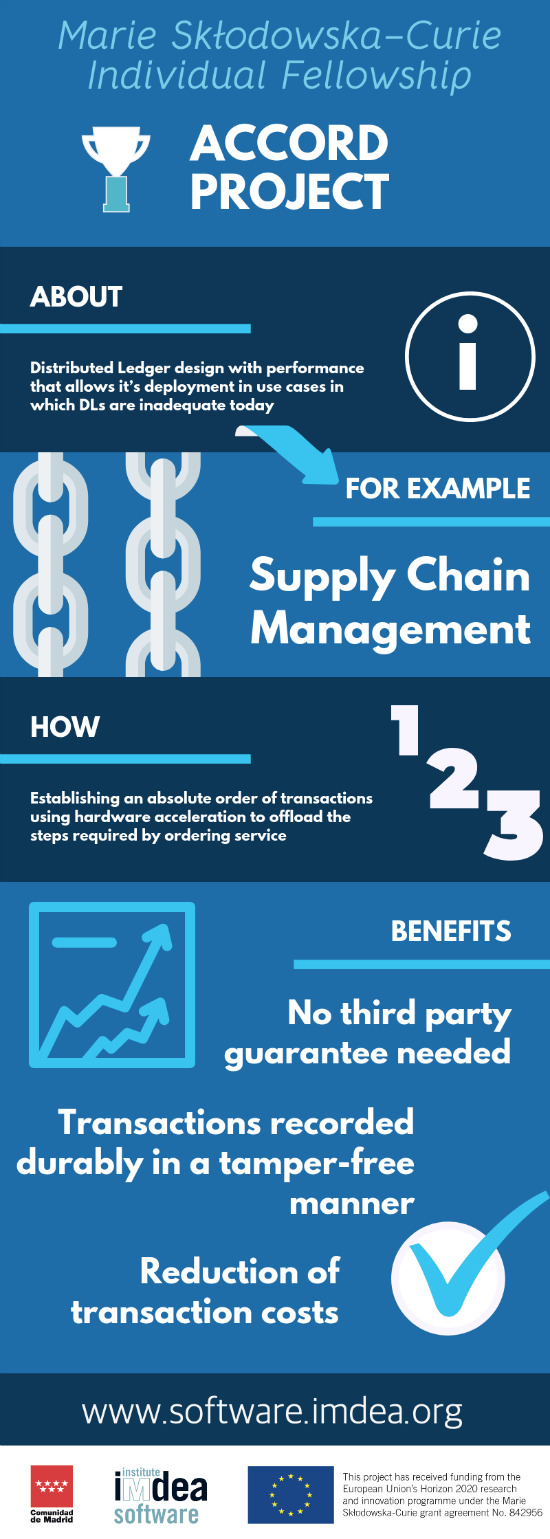IMDEA Software IMDEA Software Institute Faculty Zsolt István was awarded a Marie Skłodowska-Curie Individual Fellowship, for the Project Accelerated Ordering Service for Distributed Ledgers (ACCORD). The project sets out to improve blockchain systems that target Business to Business use-cases and builds on earlier success in the use of specialized hardware to implement distributed algorithms.
Distributed ledgers (DLs), or blockchains, have the potential of transforming the ways individuals and businesses interact by reducing the cost of transactions and the associated delays dramatically. How can this be done? Delegating today’s trusted third party guarantee to a distributed computing network that relies on cryptographic operations and sophisticated distributed consensus algorithms to ensure that transactions are recorded durably and in a tamper-free manner.
The adoption of DLs outside of crypto-currency use cases has been slow for performance reasons. The ACCORD project aims to increase distributed ledger throughput by at least an order of magnitude, while lowering latencies by a similar factor. To achieve this, the focus is on the core component of DL systems, namely, distributed consensus that is used to establish an absolute order of transactions. This ordering operation is one of the main performance bottlenecks in DLs. So, to fully exploit emerging network technologies and to overcome stagnating CPU performance, ACCORD is planning to use hardware acceleration to offload the steps required by the ordering service.
In the end, the foreseen outcome of the ACCORD project is a DL design with performance that allows it to be deployed in use-cases in which DLs are inadequate today as, for example, trading.
This project has received funding from the European Union’s Horizon 2020 research and innovation programme under the Marie Skłodowska-Curie grant agreement No. 842956.
